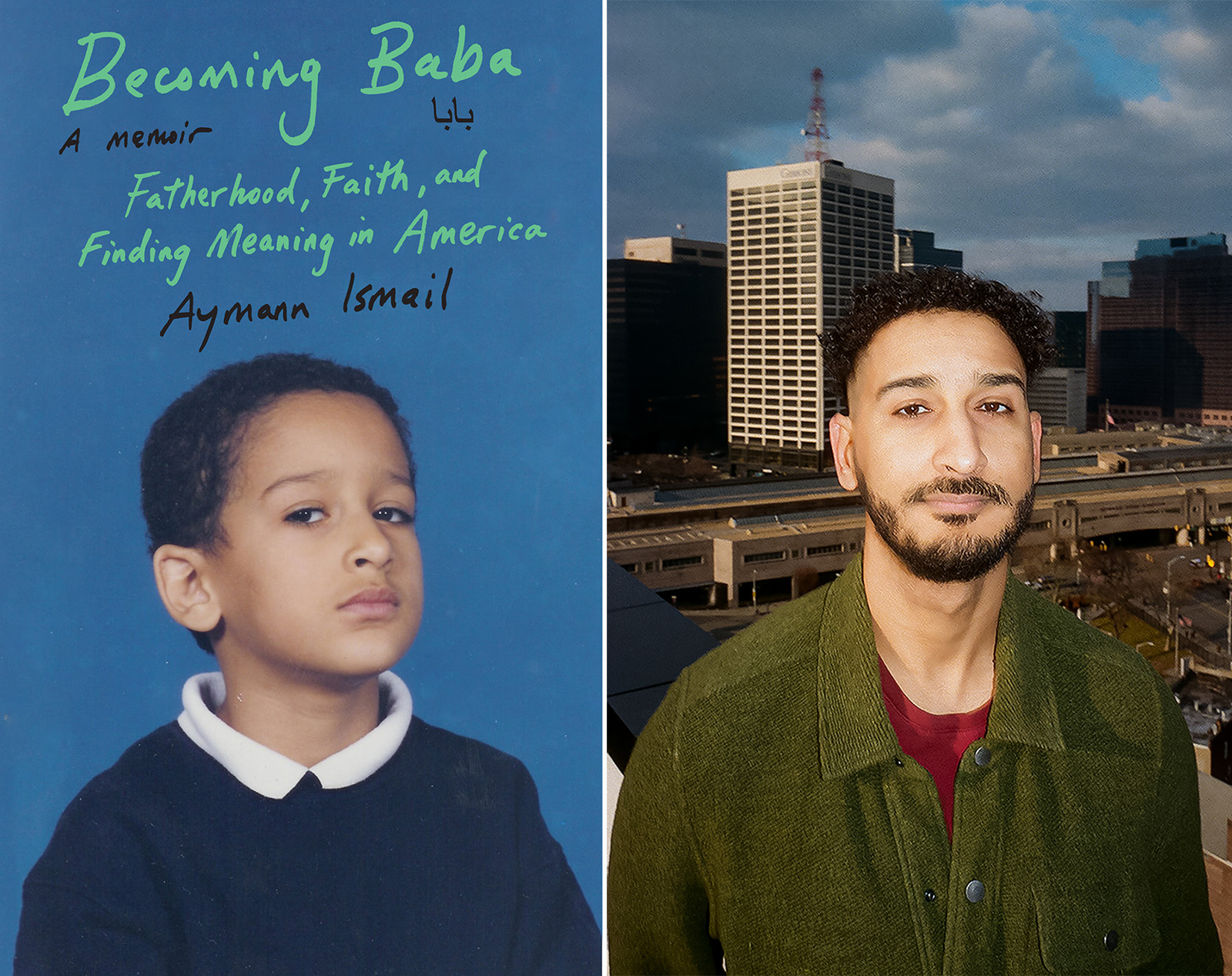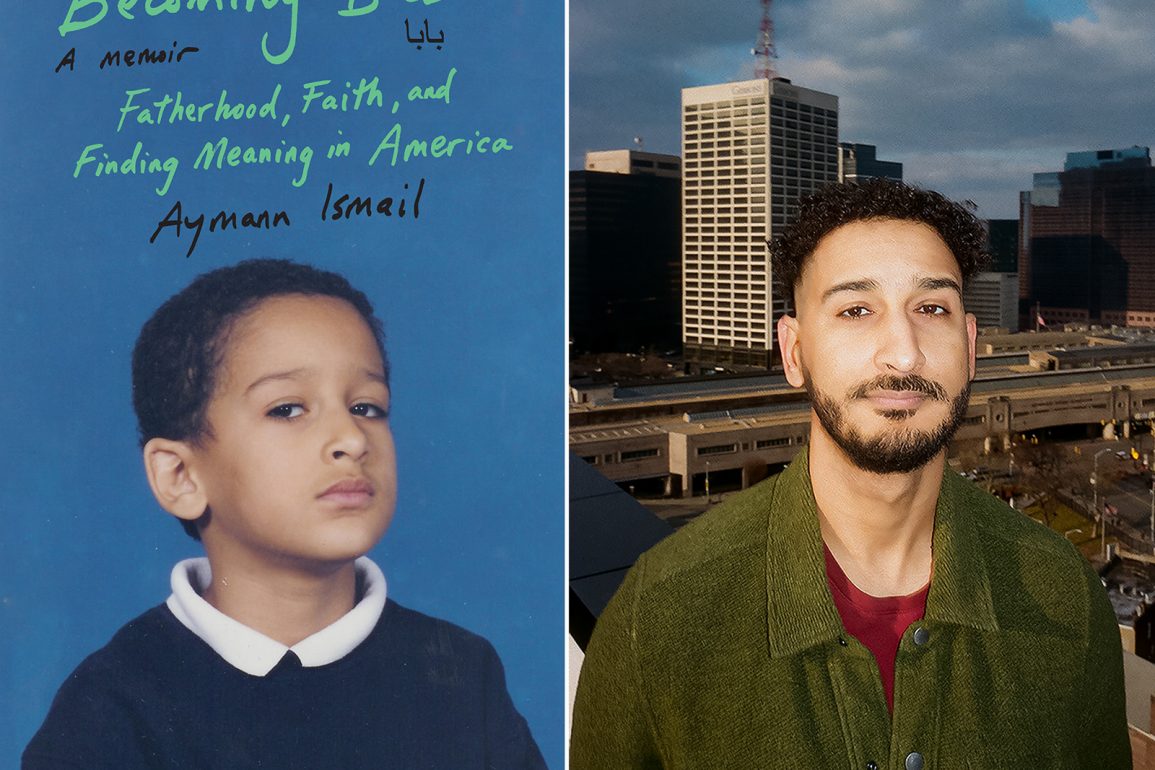(RNS) — As far as Aymann Ismail remembers, his father embraced fatherhood naturally, embodying a strong and pious figure in his household.
But when Ismail became a father in 2021, it didn’t all come so naturally. He felt unprepared and doubted whether he would be able to emulate his father — his Baba, as he calls him. He wondered: What does being a Muslim father mean? Will he succeed in connecting his kids to their Egyptian heritage? Will he lose them to the American melting pot?
“I come from many generations of Muslims, the fear that I would be the weakest link in America … made my heart sink into my stomach. I was terrified. I was scared,” Ismail told Religion News Service in a recent interview. “This book is all about that fear.”
A journalist who works for the online magazine Slate, Ismail, 35, has spent years covering American Muslims. For Slate, he produced the video series “Who’s Afraid of Aymann Ismail,” a story about anti-Muslim biases, and he co-hosted the “American Muslims: A History Revealed” documentary series. Still, he had never reflected on what being a Muslim American father meant to him.
RELATED: A PBS series on the history of Islam in America
In “Becoming Baba: Fatherhood, Faith and Finding Meaning in America,” Ismail writes a “memoir about becoming a Muslim father” to examine the question.
“Becoming Baba” retraces Ismail’s life from his years in Islamic schools to his rejection of his faith as a teenager and his reconnecting with it as an adult. The book explores what being a man meant through these different stages and delves into what fatherhood represents. As a second-generation immigrant, Ismail also writes about reconciling different aspects of his identity — Egyptian, American and Muslim — and hopes his questioning will resonate with other fathers.
Growing up south of Newark, New Jersey, Ismail explains in the book, he didn’t fully understand what it took to become a man. Young boys, he said, are expected to somehow figure it out on their own.
As he searched for direction, he tried to channel the type of man his father was. Often, the latter would joke about being a “Sa’idi man,” he explained in the book, using an Egyptian idiom that refers to men of the country’s southern region known for their grit and unimpeachable morals.
Ismail relied on his faith to emulate this model of masculinity. In the book, he recounts his efforts to become a “good Muslim” and fulfill his religious duties to perfection, to please his parents.
“The most difficult challenge I’ve had in faith was trying to emulate and copy the way that my parents practiced their faith in myself,” he said in an interview.
In the book, the author describes his identity crisis in college, when he saw Islam as a set of restrictions from which he needed to break free, despite the hold it still had on him. Ismail explains how experiencing Islamophobia in the post 9/11 years made him aware of how he was perceived in America as a Muslim man.
RELATED: America and US Muslims have come a long way since 9/11. We have a long way to go.
“Becoming Baba” is also a tribute to the women who helped him understand what type of man he wanted to be. Throughout the book, he evokes conversations with his mother, sister, university friends and wife, which help him understand the type of man, partner and father he imagined.
“This book is a map for all of the ways the women in my life taught me to become a man,” he said. “They actually showed me how to become a man.”
In a chapter titled “Halal/Haram ratio,” evoking a middle ground between being devout and not religious (halal and haram are Arabic words meaning “spiritually permitted” and “spiritually forbidden”), Ismail recounts his first encounter with his wife, Mira. An Egyptian American like him, Mira’s ability to both practice Islam with sincerity while not feeling confined by her faith inspired him, he writes. Through her, Ismail learned to connect with Scripture and reclaim his faith as his own.
Now a father of two, Ismail hopes to demonstrate both strength and vulnerability with his children. Fatherhood, he said, helped him relate more with his parents and understand the choices they had to make to raise Muslim children in America.
“They had the same fear that I had, that they might be the weak link, that they would be the ones to fail to teach their kids to become Muslim in the way that they understood it,” he said.
As he reflects on attending Ju’muah prayer with his father and his son, Ismail said it was the culmination of many efforts to be at peace with his identity. The book, too, helped him better understand his own identity.
“This book is the documentation of that journey. It’s how my identity and my masculinity and my faith all shift. They all change. When I’m no longer just someone’s son, I’m actually someone’s Baba,” he said.







